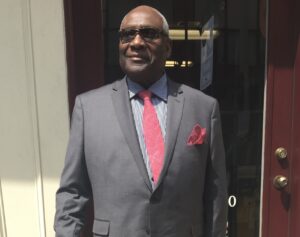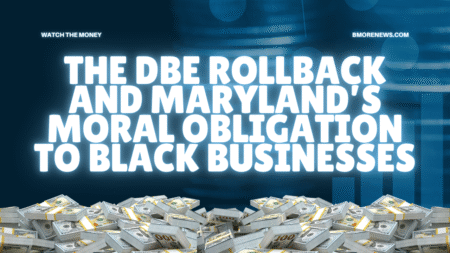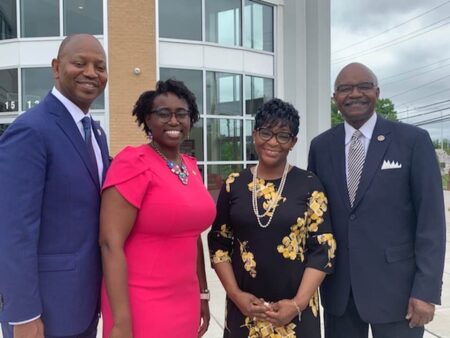(PHILADELPHIA – June 23, 2024) – Are you one of the more than 100 million Americans who live somewhere that was (or still is) under a heat advisory?
As I write these words, the mercury is soaring. The world is reeling from the deadly impact of extreme heat and weather events. This is climate change in action. We are living it. And the thermometer-busting temperatures are just the tip of the (melting) iceberg.
Jocelyn Richards of Manassas, Virginia, is staying in Maine to escape the summer heat in the South. She suffers from Chronic Inflammatory Response Syndrome (CIRS) from past exposure to mold. Heat is a major trigger for her due to Mast Cell Activation Syndrome (MCAS), a common component of CIRS.
Richards says, “Not only is the heat a major trigger, but heat releases VOCs [volatile organic compounds] from asphalt. It becomes unbearable even to walk outside or run errands because breathing from the VOCs in the air is so difficult. Along with other MCAS symptoms triggered by the heat like tachycardia, high blood pressure, and dizziness, it can quickly turn into a medical emergency if I’m out in the extreme heat for even half an hour.”
Richards is still looking for a permanent place to reside with mild temperatures and low levels of the environmental toxins that also trigger her illness. And stories like hers are increasingly common.
Extreme heat can cause or dangerously exacerbate a host of illnesses. Air quality is generally worse during extreme heat. Ground-level ozone—the main component of smog—presents one such threat. It is produced when pollutants, like those from burning fossil fuels, react with heat and sunlight. The stagnant, hot air during heat waves worsens ozone pollution.
The infamous 2022 summer heat wave in Europe is now thought to have caused up to 70,000 excess deaths, with ozone pollution playing a big part. Julie Nicely, an atmospheric chemist at the University of Maryland who worked on a report on the 2022 heat wave, noted that the mix of conditions created by such a heat wave “is very bad for the lungs and the cardiovascular system. It’s just very unhealthy.”
Then, there is the smoke from wildfires. In addition to the destruction they cause, wildfires are making it harder for millions of Americans to breathe. This problem is getting worse with longer, hotter fire seasons—another feature of climate change. The still-burning Post Fire northwest of Los Angeles is just California’s most recent high-profile fire to get national attention. Wildfire smoke has now become an issue for even more parts of the country.
At one point last summer, Chicago officially had the worst air quality in the world. Other major American cities across the Midwest and East Coast were similarly impacted, as smoke pollution from Canadian wildfires poured over the continent. The threat of a repeat this summer is still there. Wildfires in Canada are still raging, and experts say the 2024 season still could be as bad as or worse than last year’s.
In places where wildfires occur, once the flames subside, flooding becomes a threat. According to the National Oceanic and Atmospheric Administration (NOAA), the removal of trees and shrubs increases the speed and volume of runoff, and hot fires can “create a water-repellent layer of topsoil, which further amplifies runoff volume and speed,” increasing the risk of flash floods.
The heat dries out the ground and makes water absorption more difficult, creating a threat of flash floods. And as the National Institute of Environmental Health Sciences points out, “Warmer air holds more moisture, resulting in heavy rainfall, snowstorms, and flooding.” And “warming seawater can fuel stronger, more destructive hurricanes.” NOAA predicts an 85% chance of an above-normal hurricane season this year.
Beyond the threat of hurricanes along our eastern and southern coasts, inland storms are a growing threat for more and more Americans. The regions impacted by serious tornados are expanding. And once-rare derechos, another incredibly destructive windstorm, are becoming more frequent.
Sadly, the list goes on. Around the world, threats from increasing temperatures include rising sea levels, food insecurity from the loss of land suitable for crop cultivation, increased risk of infectious disease outbreaks and another pandemic like COVID-19, and the extinction of pollinators that sustain the natural life cycles on which we all depend. But although the situation is dire, we cannot succumb to despair.
We must invest in climate-resilient infrastructure and support communities most affected by climate change. One example is the more than $1 billion investment by the Biden-Harris administration to expand shade-producing and air-cleaning tree canopies in cities across the country. I was recently in Michigan with US Department of Agriculture Undersecretary Homer Wilkes to promote the many benefits of the urban forestry initiative in that state.
At the end of the day, though, there can be no substitute for tackling the climate crisis head-on when it comes to the cascade of devastation caused by rising temperatures. First and foremost, that means hastening our transition from an economy that runs on fossil fuels to one powered by clean, renewable energy. The extreme heat and weather events we’re experiencing are not only a wake-up call. They are an immediate call to action to redouble our efforts towards that transition.
Ben Jealous is the Executive Director of the Sierra Club and a Professor of Practice at the University of Pennsylvania.










